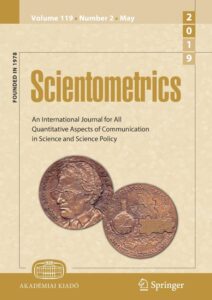Marek Kwiek and Wojciech Roszka’s research published in “Scientometrics”:
“Academic vs. biological age in research on academic careers: a large-scale study with implications for scientifically developing systems”
Available in Open Access here:
PDF here.
Kwiek, M., Roszka, W. Academic vs. biological age in research on academic careers: a large-scale study with implications for scientifically developing systems. Scientometrics (2022). https://doi.org/10.1007/s11192-022-04363-0
Abstract:
Biological age is an important sociodemographic factor in studies on academic careers (research productivity, scholarly impact, and collaboration patterns). It is assumed that the academic age, or the time elapsed from the first publication, is a good proxy for biological age. In this study, we analyze the limitations of the proxy in academic career studies, using as an example the entire population of Polish academic scientists and scholars visible in the last decade in global science and holding at least a PhD (N = 20,569). The proxy works well for science, technology, engineering, mathematics, and medicine (STEMM) disciplines; however, for non-STEMM disciplines (particularly for humanities and social sciences), it has a dramatically worse performance. This negative conclusion is particularly important for systems that have only recently visible in global academic journals. The micro-level data suggest a delayed participation of social scientists and humanists in global science networks, with practical implications for predicting biological age from academic age. We calculate correlation coefficients, present contingency analysis of academic career stages with academic positions and age groups, and create a linear multivariate regression model. Our research suggests that in scientifically developing countries, academic age as a proxy for biological age should be used more cautiously than in advanced countries: ideally, it should be used only for STEMM disciplines.



